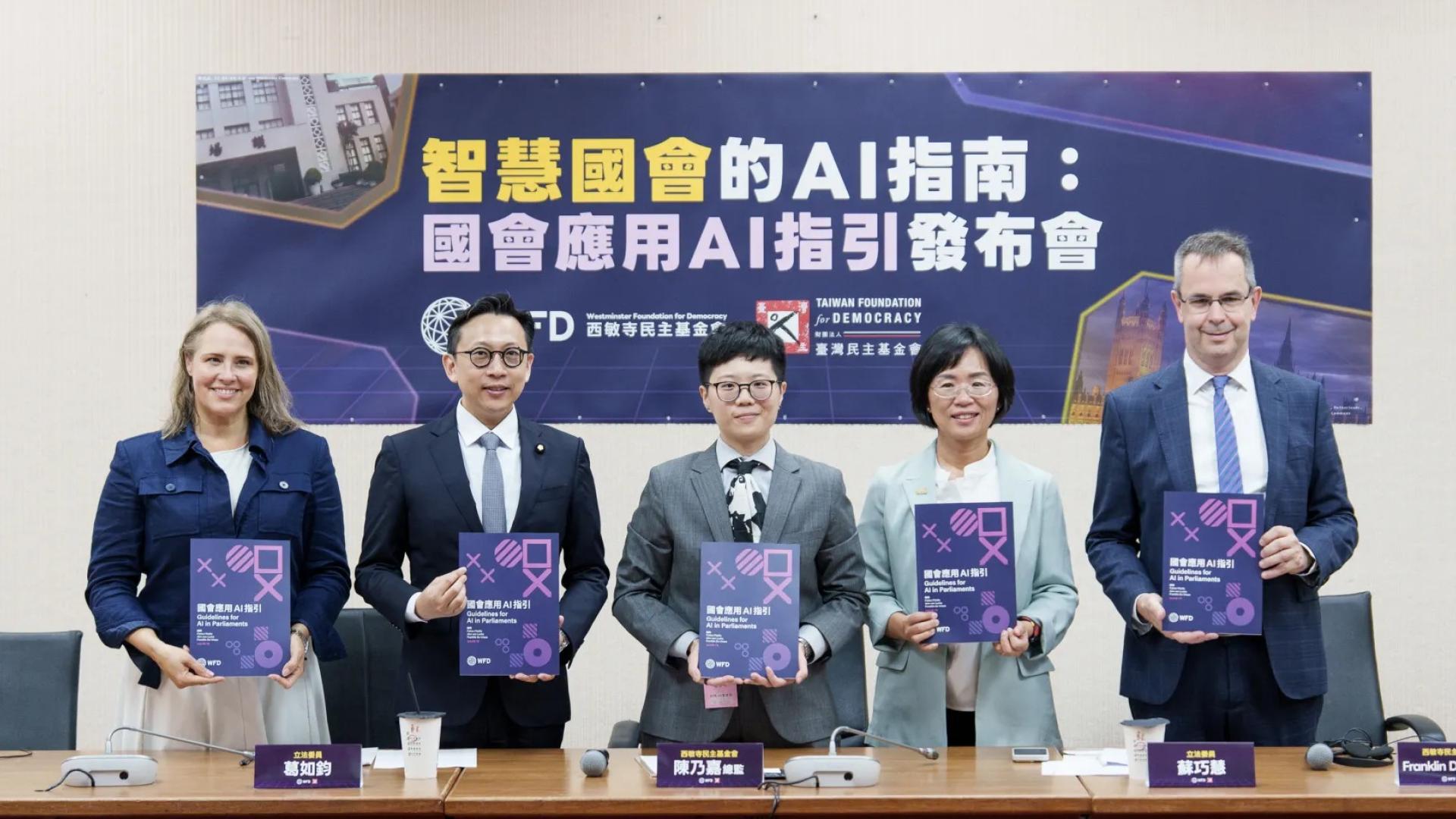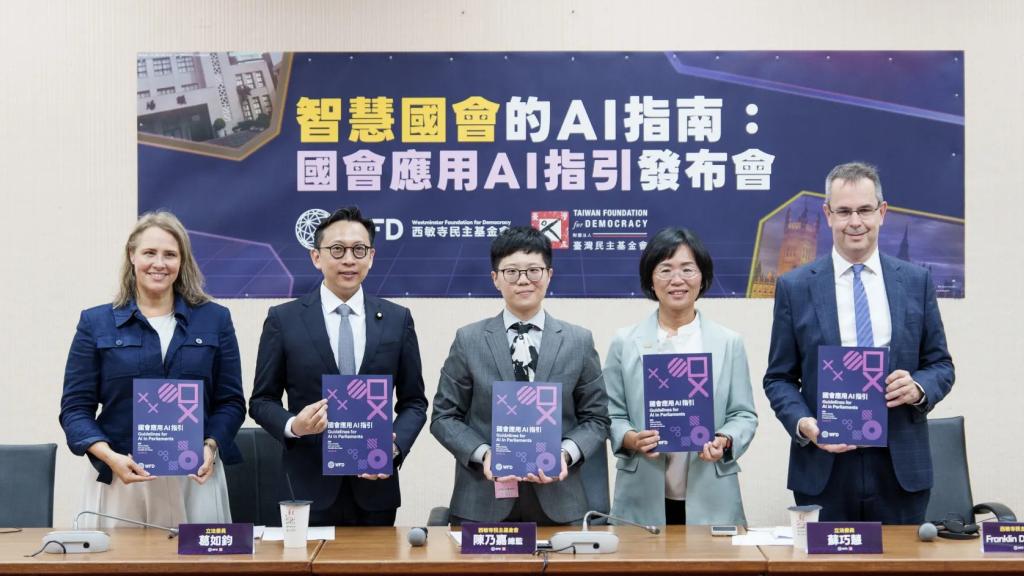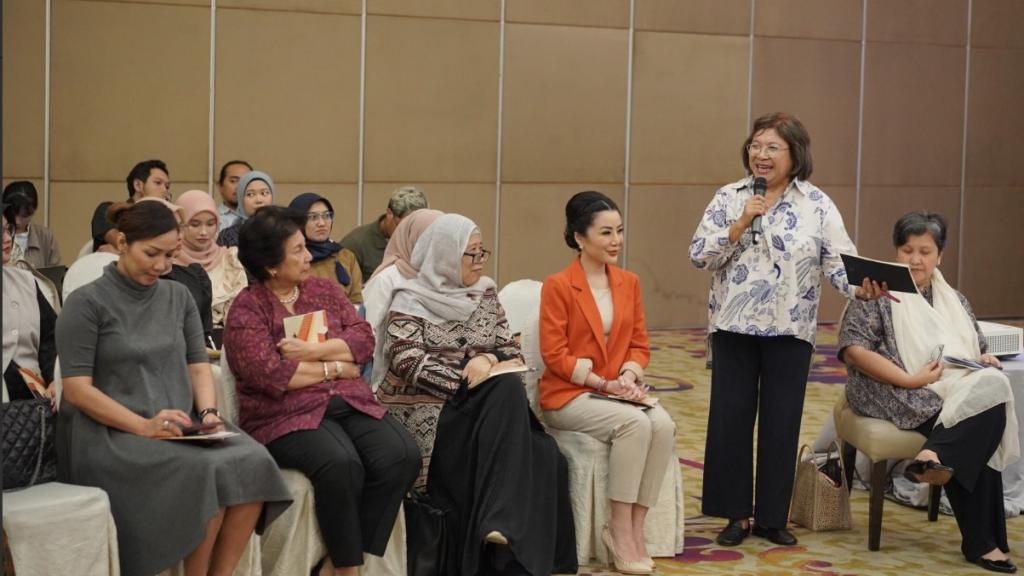Supporting Taiwan's digital democracy: WFD launches AI guidelines for parliaments in Mandarin

Taiwan, known as the “island of semiconductors”, has made leaps in technological innovation, particularly within its vibrant private sector. In parallel, the Taiwanese parliament, the Legislative Yuan, is striving to meet the demands of digital transformation, steadily exploring avenues to enhance its technological capacity and policy sophistication. Its diverse composition presents both opportunities and complexities for innovation, underscoring the importance of inclusive and adaptive approaches to tackle emerging challenges.
The “SMART Parliament” initiative between WFD Taiwan and the Taiwan Foundation for Democracy is one such example, covering areas such as digital transformation, security, and multi-stakeholder engagement. As part of this, WFD Taiwan recently organised a series of activities at the Legislative Yuan centred around the launch of the Mandarin language version of WFD’s Guidelines for AI in Parliaments (the ninth language version of the guidelines to be published).
During the launch, speakers highlighted the opportunities and challenges that AI presents for parliaments. Liao Da-Chi, Executive Director of the Taiwan Foundation for Democracy, stressed that while parliament must learn to use AI, it must first safeguard security and privacy. Legislator Chiao-Hui Su highlighted AI’s potential to improve legislative quality and participation but warned of manipulation risks and accountability gaps. Legislator Ju-Chun Ko underscored the importance of WFD’s AI guidelines, likening the resource to an “AI Basic Act” for parliament, setting the direction for emerging technologies. From the international perspective, WFD’s Head of Practice on Accountability, Franklin De Vrieze, cautioned that neglecting AI could widen the gap between technology and regulation, while Marci Harris, Director of POPVOX Foundation, suggested treating AI as “a proactive intern” which can offer options for lawmakers to assess.
WFD also held meaningful discussions with parliamentary staff on their experience and perspectives regarding AI applications, especially opportunities and challenges ahead. Together with Taiwan’s civil society representatives, WFD discussed strategies for an open parliament agenda, as well as the opportunities presented by continued involvement in the SMART Parliament initiative as it develops.
These conversations mark an important step for WFD Taiwan in building trust, fostering collaboration, and maintaining the momentum towards a truly ‘smart’ Parliament.



